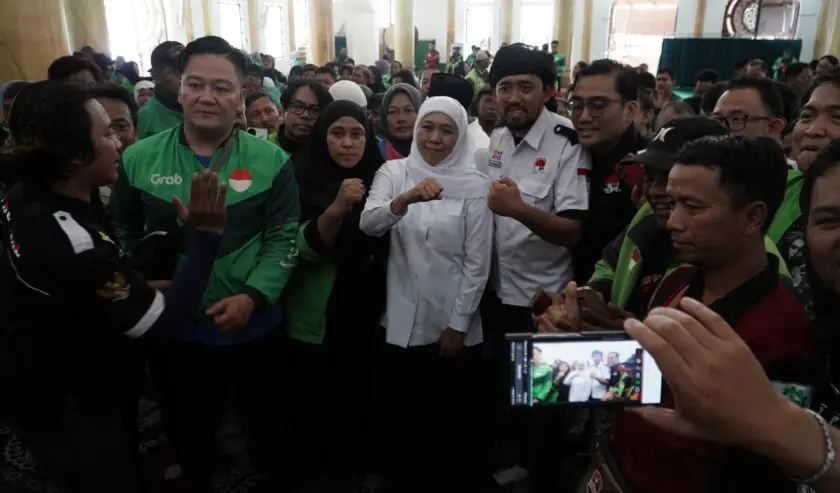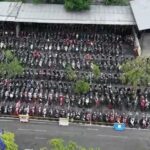Khofifah Indar Parawansa, the Governor of East Java, ensures that the teaching and learning process in all educational units can continue and remain protected following large demonstrations in several regions.
The Governor of East Java emphasized that education must remain a conducive space for students. She invited teachers and parents to keep children focused on learning.
« Education is their future. They should not be drawn into activities that could endanger themselves or others, » said Khofifah in her statement.
The East Java Provincial Government, together with the Education Office, has prepared technical steps to ensure that learning continues safely.
Starting today, the learning model is adjusted according to the security conditions in each region, whether through offline or online systems.
For relatively safe and conducive areas, learning activities continue to be conducted offline in their respective schools.
Meanwhile, in vulnerable areas or those close to protest locations, schools are asked to implement an online learning system, especially for formative exams.
« We want to ensure that education does not stop, but we also must not sacrifice the safety of students, » she said.
It is important to note that from September 1–4, 2025, all public and private high schools/vocational schools in East Java will continue to conduct exams according to the predetermined schedule. The exam model may vary between regions, depending on security conditions.
In addition, Khofifah also advised all branch heads of the education office to continue coordinating with regional leaders and local security authorities.
« If any regency/city decides on online learning for kindergarten, elementary, and junior high school levels due to security reasons, then high schools/vocational schools must also adjust. The main point is that our children should not be exposed to unnecessary risks, » said Khofifah.
Meanwhile, the Head of the East Java Education Office explained that according to Official Memorandum Number 800/5171/101.1/2025, all branch offices are required to take strategic steps to protect students.
These steps were discussed in a limited coordination meeting with 24 branch heads and the Chairpersons of the Public and Private High School/Vocational School Principals’ Working Group yesterday.
It was detailed that in Surabaya, Sidoarjo, and Gresik, formative exams are conducted online from home under the supervision of homeroom teachers and parents.
Meanwhile, in Malang City, several schools in the Tugu area and school complexes are conducting online exams due to information about protests around the Malang City DPRD building. Other schools continue to conduct offline exams with strict supervision.
« We hope that school principals, teachers, and homeroom teachers closely monitor students to ensure they do not leave school during class hours. This includes parents reminding their children not to get involved in actions that could potentially harm their future, » explained the Head.
In addition to the education sector, the Governor of East Java also issued Circular Letter Number 11410 of 2025 regarding Adjustments to the Implementation of Duties for Civil Servants and Non-Civil Servants in the East Java Provincial Government Environment.
This circular is effective from September 1–4, 2025, as an anticipatory measure for security conditions. According to the circular, regional apparatuses providing essential services such as the Health Office (including hospitals), Social Office, Transportation Office, Civil Service Police Unit, Regional Disaster Management Agency, and National Unity and Political Agency are required to work 100 percent from the office (WFO) to ensure public services run normally.
Meanwhile, other regional apparatuses are allowed to implement Flexible Working Arrangements (FWA) in the form of a combination of WFO, Work From Home (WFH), or Work From Anywhere (WFA), while still referring to service needs and security situations.
« The government must set an example in maintaining stability and ensuring public services run well. Therefore, essential services must not stop. However, for other regional apparatuses, work arrangements are more flexible to ensure the safety of employees, » explained Khofifah.






